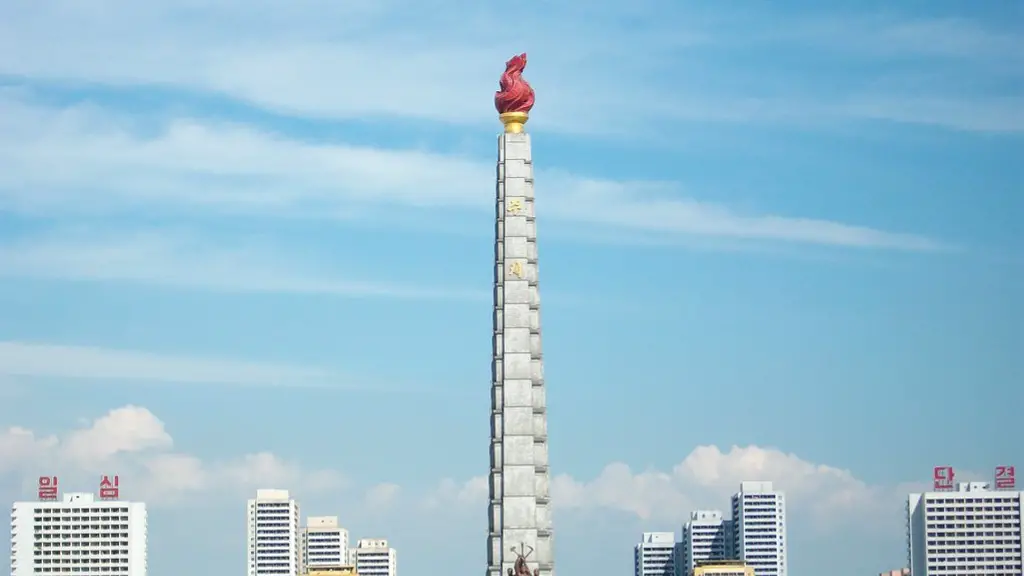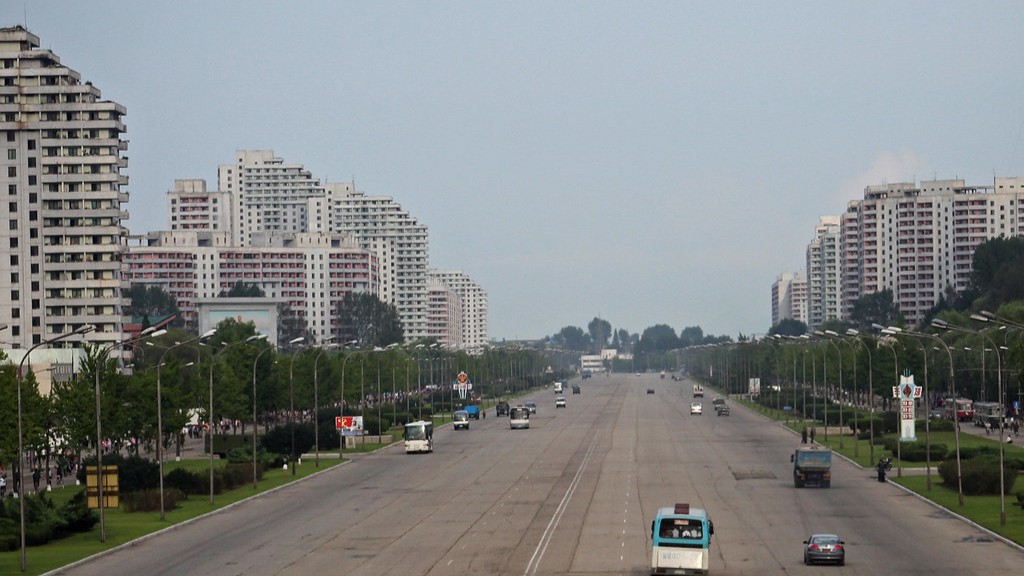What motivates leaders in Cuba, China, and North Korea? It is an interesting and complex question, one that has been discussed among academics for decades. On the one hand, leaders in these countries have immense control and authority; on the other hand, their behavior and attitude often appear inscrutable. To gain a better understanding of what motivates these leaders, we must look into each country’s unique history, politics, and culture.
In Cuba, Fidel Castro’s reign during the late 1950s and early 1960s was marked by a strong sense of national pride, as well as a rejection of capitalist values. This was reflected in the development of a “socialist project” designed to bring about economic and social change. Castro and his regime believed that the success of the revolution rested on its ability to break away from the United States and move Cuba to a socialist ideal. As a result, the leaders of Cuba have consistently rejected intervention from Washington, and have instead focused on protecting their autonomy and self-determination. It is this commitment to protecting Cuban citizens from outside control that motivates leaders in the country.
Leaders in China operate under a different set of motivations than those in Cuba. In 1949, Mao Zedong and the Chinese Communist Party overthrew the Kuomintang and began a process of political and economic reform. This included the construction of a centrally-planned economy and the introduction of a socialist ideology. Since that time, the Chinese government has sought to focus its efforts on achieving economic development, while also emphasizing social stability and the importance of preserving national unity. At present, Chinese leaders are motivated by the need to strengthen their grip on power, while at the same time improving their country’s economy.
In North Korea, the motivations of the leadership are not as clear. Kim Jong-un and his government have adopted an isolationist stance towards the outside world, and have developed a highly authoritarian and militaristic regime. The country is heavily reliant on its nuclear program, and the leaders are committed to maintaining their control over the populace. In a way, the North Korean leadership is motivated by fear, as they fear a loss of control if the country opens itself to outside influence. At the same time, economic isolation has been the root of much of North Korea’s economic woes, and the leaders are likely motivated by a desire to alleviate poverty and improve living standards.
Overall, the motivations of leaders in these three countries vary greatly. In Cuba, leaders are primarily motivated by a sense of national pride and the desire to protect their autonomy and self-determination. In China, leaders are primarily focused on maintaining their grip on power while furthering economic progress. In North Korea, the motivation of the leadership is less clear, but is likely a mix of fear and a desire to alleviate poverty and improve living standards.
Leadership Style
The leadership styles in Cuba, China and North Korea vary greatly. In Cuba, the leadership style is centralized, with Fidel Castro acting as a powerful and authoritarian leader. The Cuban government has taken a top-down approach in governing the country and is highly unwilling to deviate from its socialist ideals. In contrast, the leadership style in China is more open and democratic. China has embraced liberal economic reforms and encourages citizens to express their views in public discussions. Finally, North Korea is ruled by an authoritarian and militaristic regime, with Kim Jong-un at the helm. The leaders of North Korea have limited contact with the outside world and discourage citizen participation in governance.
The differences in leadership styles in these countries are reflective of each country’s history, politics and culture. In Cuba, the centralized approach to government arises from Fidel Castro’s strong sense of national pride and the need to reject capitalist values. In China, the open and democratic approach is rooted in the government’s efforts to encourage economic progress and create social stability. In North Korea, the authoritarian and militaristic approach of Kim Jong-un and his government reflects the nation’s need to protect itself from outside interference.
Factors Influencing Motivations
What motivates leaders in Cuba, China, and North Korea is highly influenced by a number of factors. In Cuba, Fidel Castro’s strong sense of national pride and a desire to protect the country from outside intervention have been the primary drivers of his regime’s decisions. In China, the influence of economic reforms and the desire for economic progress have been key motivators for the Chinese leadership. Finally, in North Korea the motivations are more difficult to discern, but fear of losing control and a desire to alleviate poverty are likely at play.
The external environment also has a significant impact on how leaders in these countries are motivated. For example, the United States’ long-standing trade embargo on Cuba has forced the Cuban government to find ways to create economic growth without relying on foreign investment or aid. In China, the country’s transition to a market economy has been accompanied by an emphasis on liberal economic reforms, while North Korea’s long-standing isolation has had an undeniable effect on the motivations of Kim Jong-un.
Political Context
In addition to factors such as history, economics, and culture, we must also consider the political context in each country when attempting to understand what motivates leaders in Cuba, China, and North Korea. In Cuba, Fidel Castro and the Cuban government have long sought to create a socialist state and to protect the Cuban people from outside intervention. In China, the leaders are committed to furthering economic progress, while also emphasizing social stability and national unity. In North Korea, the motivations of Kim Jong-un and his government are more difficult to determine, however they appear to be focused on maintaining control and protecting the nation from outside interference.
An analysis of the various political systems in each of these countries allows us to gain a better understanding of what motivates the leaders. In Cuba, the government is highly centralized and authoritarian, reflecting Fidel Castro’s vision for the country. In China, the government has embraced liberal economic reforms and is open to citizen participation in the political process. In North Korea, the leadership is highly authoritarian and militaristic, and encourages little if any engagement with the outside world.
Economic Impact
The motivations of leaders in Cuba, China, and North Korea have had a significant impact on their respective economies. In Cuba, the government’s commitment to socialism has led to a system with limited economic incentives and the country remains one of the poorest in the Americas. In China, the introduction of market reforms and an openness to foreign investment has had a positive effect on economic growth, while in North Korea the government’s isolationist policies have kept the country impoverished.
Despite these differences, the overarching objectives of the leaders in all three countries remain largely the same: to further economic progress while maintaining control and protecting the nation from external interference. The methods used to achieve these objectives, however, vary greatly and depend on the history, politics, and culture of each country.
Consequences
The consequences of these motivations have been felt by citizens in all three countries. In Cuba, the government’s commitment to socialism has resulted in an economy with limited opportunities, while in China the focus on economic development has come at the cost of social stability and freedom of expression. In North Korea, the isolated and authoritarian regime has caused economic hardship and limited access to basic services.
The effects of this have been far-reaching, as citizens in all three countries suffer from poverty, lack of food and medical supplies, and restrictions on freedom of movement and expression. To break out of this cycle, leaders in all three countries must re-evaluate their motivations and seek to create policies that improve the lives of all citizens while protecting their nations’ autonomy and integrity.
International Relations
The motivations of leaders in Cuba, China, and North Korea have had an impact on their respective international relations as well. Cuba’s adherence to its ideologies has kept the country largely isolated from its neighbors, while China has embraced trading and diplomatic relations with the United States and other nations. North Korea, meanwhile, has aggressively pursued its nuclear program and has been condemned by the international community for its human rights abuses.
These motivations have also had an effect on the geopolitical landscape. China’s economic reforms have helped expand its influence in the region, while North Korea’s aggressive stance has isolated the country from its neighbors. Cuba, meanwhile, has maintained strong ties with its allies in the region, and continues to be a vocal leader in the Latin American region.
Analysis
The motivations of the leaders in Cuba, China, and North Korea can be difficult to understand, as each country has a distinct history, politics, and culture. However, upon closer examination, there are underlying similarities. All three countries are committed to creating economic development while also protecting their autonomy and independence. Additionally, the motivations of the leaders in each country have had an undeniable effect on their citizens.
It is clear that, in order to create positive change in all three countries, the motivations of their leaders must shift towards policies that seek to improve the lives of their citizens, while also maintaining the autonomy and integrity of their nations. Academic analysis and discourse can be a powerful tool for achieving these goals, and it is up to those who study and observe these countries to ensure that their voices are heard.




